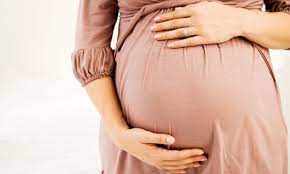Understanding the Impact of Pregnancy on Biological Aging
Recent research conducted in the Philippines suggests a potential link between pregnancy and accelerated biological aging. This study sheds light on how the chemical tags atop DNA may undergo changes during pregnancy, influencing the process of biological aging.
Biological Aging in Women: The Effects of Pregnancy
The study reveals that women in their early 20s who have experienced pregnancy tend to exhibit signs of being “biologically older” compared to those who have not been pregnant. Furthermore, the age gap appears to widen among individuals with multiple pregnancies.
Exploring Epigenetic Changes: Insights from the Research
The research, conducted using various epigenetic analysis tools, delves into the realm of epigenetics, focusing on the chemical modifications that regulate gene expression without altering the DNA sequence. Specifically, the study examines methyl groups, which play a crucial role in the aging process.
Epigenetic Clocks: Assessing Biological Age
Scientists have developed “epigenetic clocks” based on methylation patterns observed throughout the human lifespan. Unlike chronological age, which simply reflects the number of years lived, biological age provides insights into an individual’s physiological state and susceptibility to age-related conditions.
The Predictive Role of Epigenetic Clocks
According to Calen Ryan, the lead author of the study and an associate research scientist at the Columbia Aging Center, epigenetic clocks serve a predictive function, offering valuable insights into various aspects of aging. These clocks can estimate not only chronological age but also the likelihood of death and the length of telomeres, protective structures at the end of DNA strands.
Empowering Predictive Medicine
By harnessing the predictive power of epigenetic clocks, researchers aim to enhance our understanding of aging and its associated health risks. This knowledge can inform personalized medical interventions tailored to individuals’ biological age and health status.
Implications for Women’s Health and Aging Research
The findings of the Philippines study underscore the complex interplay between pregnancy and biological aging. Further research in this field holds promise for advancing our understanding of women’s health and aging processes.




